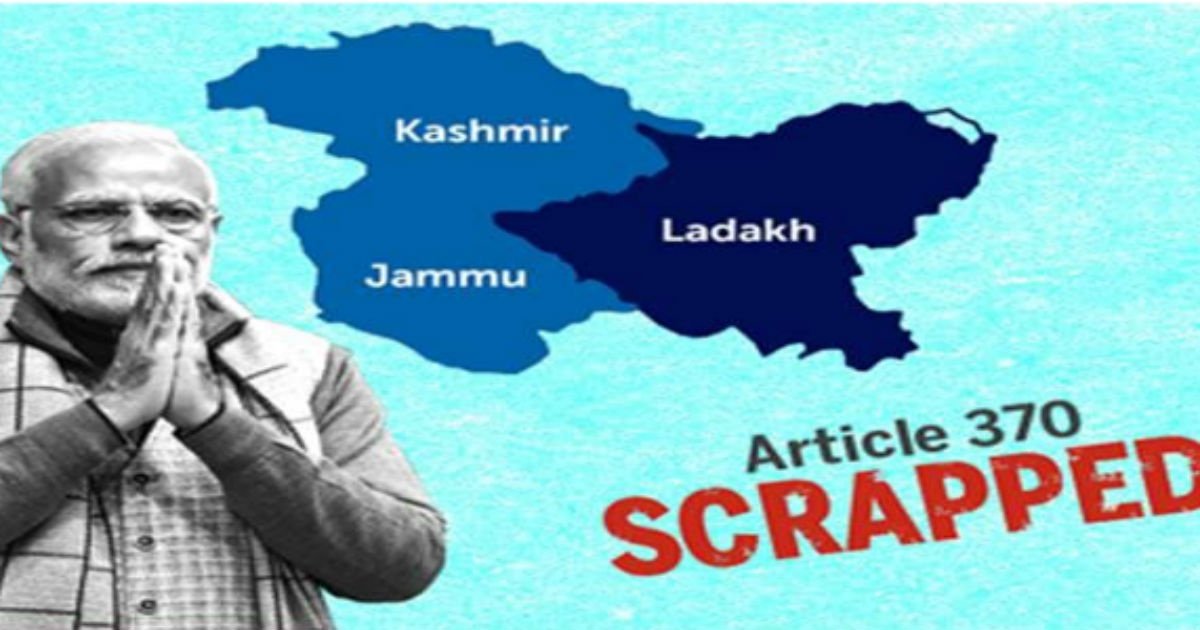We may have heard many times discussing articles 370 and 35A. We know that article 370 and 35A is connected to the state of Jammu and Kashmir. Article 35A gives special citizenship rights to the residents of Jammu and Kashmir.
Our country became independent on August 15, 1947. The state of Jammu and Kashmir also got independence. Raja Hari Singh was the ruler of the state of Jammu and Kashmir and he wanted to keep Jammu and Kashmir independent from India. That is why Jammu and Kashmir did not join India but when On 20 October 1947, the Pakistani Army invaded Jammu Kashmir and captured a large part of it, which we know as Pakistan-occupied Kashmir.
Then Raja Hari Singh asked for assistance from the Prime Minister of India Jawaharlal Nehru and he signed a merger letter on 26 October 1947 in which Jammu and Kashmir were considered as an integral part of India.
According to this pact, the Indian Parliament has the right to make laws in Jammu and Kashmir on only three subjects - Communications, Defense, and Foreign Affairs.
And in the case of other subjects, the state of Jammu and Kashmir has a monopoly. And the Indian Parliament does not have the right to interfere in those matters.
At the same time, article 370 was added to the Indian Constitution. Under this article, the people of Jammu and Kashmir state have two citizenship, one from India and one from Jammu and Kashmir state.
The state of Jammu and Kashmir is an integral part of India and it is also the cause of dispute between India and Pakistan. This is the reason that the state of Jammu and Kashmir has been placed in the category of special state. Given and under Article 35A, citizens of Jammu and Kashmir state were given special citizenship rights.
According to this article, only the residents of the state of Jammu and Kashmir can vote and the residents of other states cannot vote if there is a parliamentary election in the state of Jammu and Kashmir.
On 5 August 2019, the Jammu Kashmir Reorganization Act 2019 was introduced by the Defense Minister of the Government of India, Amit Shah. It proposed to remove section 370 from Jammu and Kashmir and divide Jammu Kashmir into two union territories Jammu Kashmir and Ladakh. Jammu Kashmir will have its own legislature while Ladakh will not have a legislature.
The Act was passed by the Rajya Sabha and the next day the Lok Sabha also passed the Act. And after the President's signature, the Act became law. According to this Act all the provisions passed by the Indian Constitution will apply to Jammu and Kashmir. . After the removal of Article 370, the status of the special state of Jammu and Kashmir has also ended.
With the formation of the union territory of Jammu and Kashmir, the number of states in India has increased to 28 and the number of union territories to 9.

After the abolition of Section 370 in Jammu and Kashmir, many of the provisions used to separate the citizens of Jammu and Kashmir from India have expired, now any person from India can buy land in Jammu and Kashmir. Simultaneously, citizens of other states can also get government jobs in Jammu and Kashmir.
And a citizen of any other state can become a candidate in the election of Jammu and Kashmir and can also vote. Now a girl from Jammu and Kashmir will not have to lose her citizenship if she marries any boy in India. Tenure will be 5 years instead of 6 years.
With all these provisions, Jammu and Kashmir have become a new union territory.